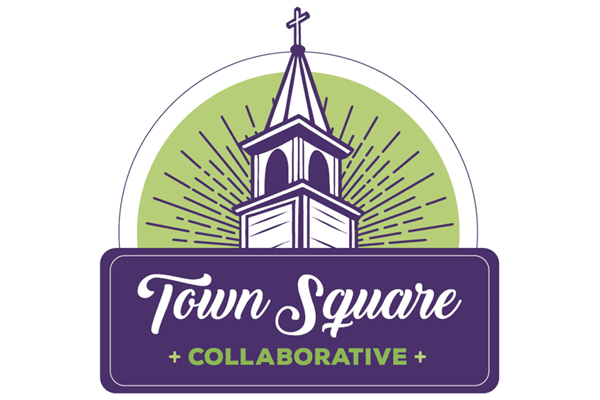
University of the Ozarks has established the Town Square Collaborative (TSC), a regional ecumenical initiative to serve and support rural communities, congregations, and their leaders.
In conjunction with TSC, the University has announced programmatic partnerships with three area nonprofits — Community Action Partnership, Winthrop Rockefeller Institute and Innovative Poverty Solutions. These organizations will receive grants from the University to support the work of rural congregations in their communities, bringing the expertise of the non-profit into collaboration with the local presence of rural churches.
Based on the U of O campus in Clarksville, Ark., TSC was made possible by a trio of grants to the University from Lilly Endowment Inc., totaling more than $6.8 million from 2021 to 2024. The TSC’s new website can be found at www.townsquareco.org
The Rev. Phillip Blackburn, director of the TSC, said the new collaborative brings all of the components of the previous Lilly Endowment grants as well as new initiatives under one program. Among those components are pastor and lay pastor cohorts, ruling elders in ministry, internships, thriving congregations, and a new Rural Ideas Conference.
“I am thrilled to be involved in this work and to be doing it from the geographical heart of the Presbytery of Arkansas,” Blackburn said. “Rural churches play a vital role in our national culture and in their own communities and the opportunity to bring all the work we do for rural churches and their leaders together in one place is exciting. We want to make it as easy as possible for congregations, pastors and communities to take advantage of our resources.”
U of O President Richard Dunsworth cited the University’s long association with the Presbyterian Church as a reason TSC is a good fit for Ozarks. The University has been affiliated with the Presbyterian Church since its establishment in 1834 in Cane Hill, Arkansas.
“Today, University of the Ozarks is in a position of responsibility and obligation of Christian service to step into this place of need within rural churches and communities and provide a leadership role that will build bridges and enhance rural communities,” Dunsworth said. “We’re a university of the church, and we’re a rural university in Arkansas. It just makes sense for us to support congregations and rural communities throughout our region.”
One of the key components of the TSC is the inaugural Rural Ideas Conference, scheduled for July 16-18, 2025, on the U of O campus. The annual conference is open to rural church pastors and leaders and will focus on how rural churches can embrace their role as anchor institutions in their communities. It will feature speakers from across the country who specialize in rural congregations as well as non-profit programmatic partners who can help churches better support their communities and neighbors.
Blackburn said the nonprofit programmatic partners will play a role in the collaborative through their respective areas of focus — Community Action will work with food insecurity, Innovative Poverty Solutions will work with antipoverty efforts and the Winthrop Rockefeller Institute will work in the area of civic engagement. He said the Lilly grants will allow the University to allocate nearly $3 million over five years to their nonprofit partners.
“The relationship with our programmatic partners will be a key to our work,” Blackburn said, “We want to create meaningful collaboration between nonprofits who have the proved ability to affect change in the lives of people and congregations who have served their communities for generations. We believe that through true partnership both non-profits and churches can benefit and, in so doing, better enrich their communities.”
Blackburn said the goal of TSC is ultimately to “bring people together from rural areas all over the region to celebrate the things that make small communities wonderful.”
“If you’re a rural church, we want you to go to our new website and explore the different resources that are available to you,” Blackburn said. “We want you to come to the conference in July and see how we can be assistance to you, your congregations and your communities.”
Topics: Community Service
